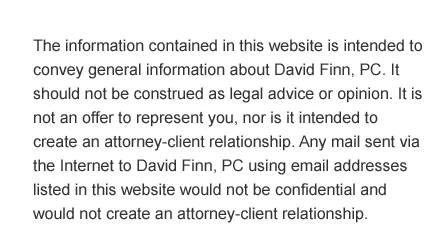


What is Fraudulent Use of Identifying Information?
It is illegal in Texas to possess or use someone else’s ID or other identification documents. Under Texas Penal Code § 32.51, the use or possession of another person’s identifying information without their permission is a crime, particularly if you intend to use it to commit fraud or cause harm.
If you are convicted of fraudulently possessing or using identifying information in Texas, you can face imprisonment, fines, community service, or other criminal penalties. Penalties are based on the offender’s criminal record and how many times they acquired, took possession of, or used the identifying information. If you have been arrested for violating Texas Penal Code § 32.51, you should immediately contact an experienced criminal defense lawyer so these charges do not damage your career and your personal life.
What is “Identifying Information”?
According to Texas Penal Code Section 32.51, “identifying information” is information that identifies a person, whether used alone or together with other information. It can include information about:
- A person’s name and date of birth
- A person’s biometric data, including their fingerprint, voice print, or iris image
- A person’s electronic identification number and financial information
- A person’s telecommunication access device such as account number, PIN, and electronic serial number.
- A person’s social security number
Criminal defense lawyers are skilled in handling these cases and in determining whether the accused person actually owned, acquired, or used the identifying information. Every element of a code section must be proven before a defendant can be convicted of a crime.
The court must prove that the accused really did intend to use the identifying information to harm or defraud the owner. However, the intention will be taken as true if the accused possessed the information of at least three persons (including deceased ones).
How is the intention to harm or defraud presumed?
The Texas Penal Code § 32.51(b-1) states that the intention to harm or defraud another person is presumed if the accused possesses:
- the identifying information of three or more other persons
- information described by Subsection (b)(2) concerning three or more deceased persons; or
- information described by Subdivision (1) or (2) concerning three or more persons or deceased persons.
The presumption contained in the statute “does not apply to a business or other commercial entity or a government agency that is engaged in a business activity or governmental function that does not violate a penal law of this state.”
What are the penalties for fraudulent use of identifying information?
The fraudulent use of identifying information is a felony. The penalties for such offense get tougher each time it is committed. Penalties depend on the number of identifying information the accused possessed, acquired, or used.
- If there are less than five pieces of identifying information, the offense is considered a felony and punishable by imprisonment of between 180 days and 2 years.
- If the accused possessed, acquired, or used between 5 and 10 pieces of identifying information, the offense is considered a third degree felony. The accused faces a $10,000 fine and a jail term of between 2 and 10 years.
- If the accused possessed, acquired, or used between 10 and 50 pieces of identifying information, the crime is a second degree felony. If convicted, the accused may pay a fine of up to $10,000 and serve a jail term of between 2 and 20 years.
Can a defense lawyer help you if you are accused of the fraudulent use of identifying information?
Criminal defense lawyers are experienced in handling all types of claims. Every element of a code section must be proven before a defendant can be convicted of a crime. Lacking that certainty, a prosecutor may decide to minimize or even drop charges before trial, rather than risk a case in court. This kind of decision, though, is usually prompted by the urging of an aggressive criminal defense attorney, tirelessly advocating for their client.
In addition, a criminal defense lawyer will carefully review the facts of the arrest to ensure the defendant’s constitutional rights were not violated before, during, and after they were booked into jail. Perhaps the prosecutor’s case fails before getting to the matter of evidence. A criminal defense lawyer can also talk to the defendant about the caution needed in providing statements or producing evidence that may harm their case. While a defendant may want to be thought of as helpful, that cooperation might result in jail time that was otherwise avoidable.
Contact us
If you are charged with the use or possession of another person’s identifying information, you will want to have David Finn on your side. He will aggressively fight to defend your personal and professional rights. Call his office at (214) 538-6629 or contact him direct at (214) 538-6629.
Phone Numbers
Office: (214) 538-6629
Office Location
Dallas






